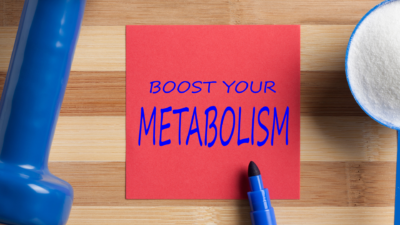In today’s fast-paced American lifestyle, where mornings are often rushed and nutrition is sacrificed for convenience, the importance of a protein-rich breakfast cannot be overstated. Health experts and nutritionists have long emphasized the role of breakfast in supporting overall well-being, and recent research has increasingly highlighted the unique benefits of prioritizing high-protein meals in the morning.
Contents
Why Protein Matters in the Morning
The Impact of a Protein-Rich Breakfast on Metabolism
Best Sources of Protein for Breakfast
Easy Protein-Rich Breakfast Ideas
The Cultural Relevance of Breakfast in the U.S.
Common Myths About Protein at Breakfast
Practical Tips for Increasing Morning Protein Intake
Conclusion
Why Protein Matters in the Morning
Protein is an essential macronutrient that supports muscle repair, hormone production, and the maintenance of healthy skin and hair. When consumed during breakfast, it has been shown to improve satiety, reduce cravings throughout the day, and assist with weight management. According to a study published in the American Journal of Clinical Nutrition, individuals who consumed at least 30 grams of protein at breakfast reported reduced feelings of hunger and lower levels of the hunger hormone ghrelin (Leidy et al., 2015).
Moreover, muscle mass maintenance becomes increasingly important with age, and a protein-rich breakfast can help mitigate age-related muscle loss. For individuals who engage in regular exercise, starting the day with protein aids in recovery and performance. As a result, many athletes and fitness enthusiasts incorporate high-protein foods into their breakfast routine.
The Impact of a Protein-Rich Breakfast on Metabolism
It has been well-documented that metabolism is influenced by the types of foods consumed. A high-protein breakfast has been associated with increased thermogenesis, meaning more calories are burned during digestion compared to a carbohydrate-heavy meal. This can contribute to a more efficient metabolic rate throughout the day.
Additionally, protein has a stabilizing effect on blood sugar levels. By slowing the absorption of glucose, protein-rich foods can prevent the spikes and crashes that often follow a sugary breakfast. This not only benefits those managing type 2 diabetes but also helps improve energy and focus during work or school hours.
Best Sources of Protein for Breakfast
Numerous protein-packed foods can be easily incorporated into a traditional American breakfast. Among the most popular and effective sources are:
- Eggs: Versatile and nutrient-dense, eggs provide high-quality protein and essential nutrients like choline and vitamin D.
- Greek yogurt: Especially when unsweetened, Greek yogurt is an excellent source of protein, probiotics, and calcium.
- Cottage cheese: Low in fat and high in casein protein, it offers a slow-digesting option for prolonged satiety.
- Turkey or chicken sausage: A leaner alternative to traditional pork sausage, providing protein with less saturated fat.
- Protein smoothies: Made with protein powder, milk or dairy-free alternatives, and fruits or vegetables, they are quick and convenient.
- Nut butters: Almond or peanut butter on whole grain toast offers a good combination of protein, healthy fats, and fiber.
- Tofu and tempeh: Excellent plant-based options for those following a vegetarian or vegan diet.
Easy Protein-Rich Breakfast Ideas
To make the adoption of a protein-focused breakfast easier, several simple and delicious recipes can be prepared with minimal effort:
- Scrambled eggs with spinach and feta: A nutrient-rich, low-carb option ready in under 10 minutes.
- Overnight oats with chia seeds and Greek yogurt: Prepare the night before and enjoy a filling, protein-boosted meal.
- Breakfast burrito: Filled with eggs, beans, lean meat, and vegetables wrapped in a whole grain tortilla.
- Protein pancakes: Made with oats, eggs, and cottage cheese or protein powder, topped with fresh berries.
- Smoothie bowl: Blended protein shake poured into a bowl and topped with nuts, seeds, and fruit.
These ideas can be modified to suit personal tastes and dietary restrictions, ensuring a sustainable habit of starting the day with a nutrient-dense breakfast.
The Cultural Relevance of Breakfast in the U.S.
Breakfast in America has historically included items like cereals, toast, pancakes, and coffee. However, a shift has been observed in recent years as more people become aware of the benefits of low-carb high-protein diets. This change has been fueled by the popularity of diets such as keto, paleo, and Whole30, which place emphasis on protein consumption and reduced carbohydrate intake.
This shift has also been supported by increasing availability of protein-enriched products in grocery stores and restaurants. From protein bars to fortified cereals and high-protein frozen breakfasts, the modern American consumer is provided with a variety of convenient choices.
Common Myths About Protein at Breakfast
One common myth is that eating a protein-rich meal is only necessary for athletes or bodybuilders. In reality, everyone can benefit from improved satiety and metabolic function. Another misconception is that too much protein can harm the kidneys; however, this has only been found to be a concern for individuals with preexisting kidney disease.
Moreover, it has been mistakenly believed that carbohydrates should dominate breakfast. While complex carbs have their place, they are better utilized when balanced with lean protein sources to support stable energy.
Practical Tips for Increasing Morning Protein Intake
To ensure that enough protein is consumed in the morning, the following strategies can be applied:
- Plan ahead: Meal prep items like egg muffins or overnight oats in advance.
- Use supplements wisely: Protein powders can be added to smoothies or baked goods.
- Incorporate leftovers: Last night’s chicken breast can be turned into a breakfast wrap.
- Keep snacks handy: Greek yogurt or hard-boiled eggs can be eaten on the go.
By making these small adjustments, a transition to a protein-based breakfast can be easily maintained.
Conclusion
The benefits of consuming a protein-rich breakfast are supported by science and aligned with the nutritional needs of the modern American lifestyle. By focusing on high-protein breakfast foods, individuals can improve satiety, boost metabolism, manage weight, and enhance overall health. As more people seek to improve their morning routines, protein is likely to remain at the center of a balanced, effective diet.
Whether through traditional eggs and sausage or modern smoothies and protein pancakes, the key to unlocking better health might just lie in how the day is started.
References: Leidy, H. J., Clifton, P. M., Astrup, A., Wycherley, T. P., Westerterp-Plantenga, M. S., Luscombe-Marsh, N. D., … & Mattes, R. D. (2015). The role of protein in weight loss and maintenance. American Journal of Clinical Nutrition, 101(6), 1320S-1329S.





